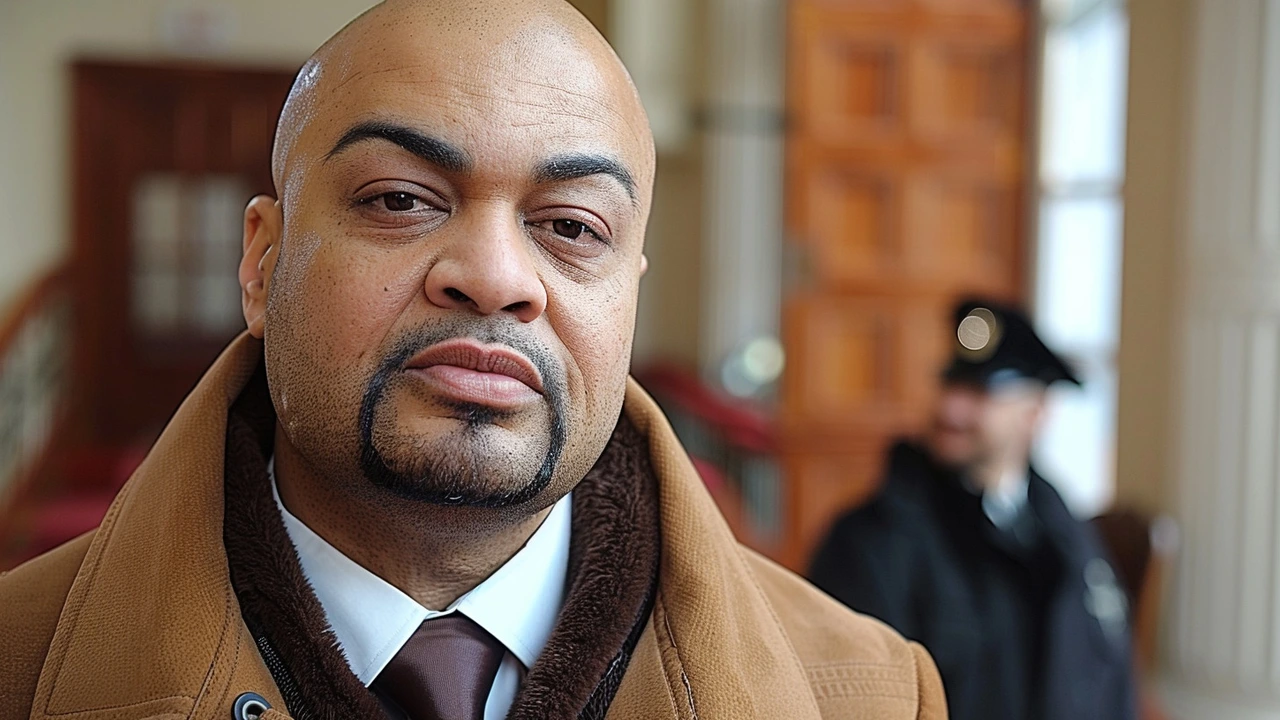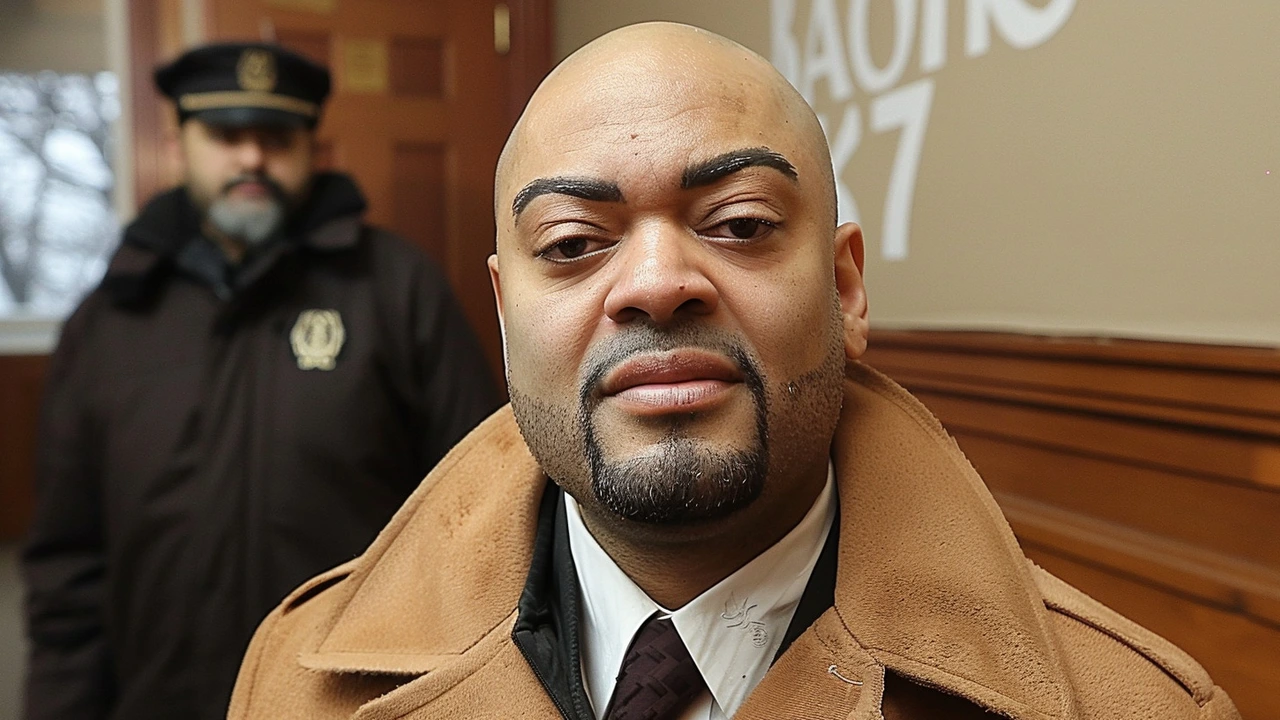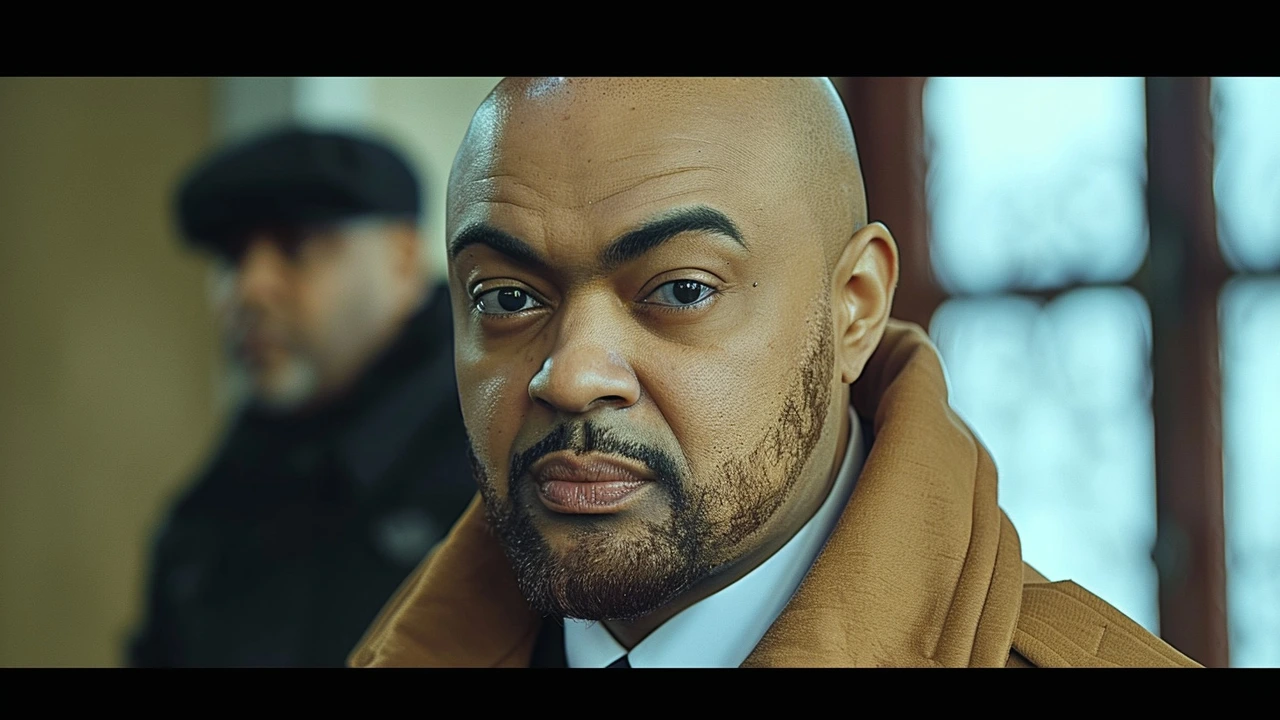Thabo Bester's Law Defying Plea
In a jaw-dropping court appearance, convicted murderer and rapist Thabo Bester took the floor at the Free State High Court not just to defend but to seemingly hasten his grim fate. This court session, unlike any other, witnessed Bester representing himself after his legal team withdrew over unpaid fees. The latter part alone had jaws dropping; however, what followed next threw the courtroom into unprecedented pandemonium.
Bester's plea was extraordinary, unprecedented, bordering on the surreal. Standing defiant, he implored the court to consider a most controversial course of action — the death penalty, a plea seemingly straight out of a different legal era. He leaned heavily on abolished legislation, anachronistically quoting laws wiped off the statute books years ago. His argument hinged not just on his own controversial sentence but went a step further, requesting the release of those implicated in his alleged prison break from Mangaung Correctional Centre.
A Controversial Stand
What was perhaps more remarkable than Bester's plea for capital punishment was his impassioned call for the release of his co-accused. According to him, individuals such as Nandipha Magudumana, Zolile Sekeleni, Xando Moyo, Teboho Lipholo, Buti Masukela, Teiho Makhotsa, Senohe Matsoara, and James Lipholo have no guilt attached to the alleged escape plot. This plea condemned what Bester described as unnecessary persecution.
Bester painted a picture of systemic failings, portraying himself as a victim of state lethargy. Venting frustration, he accused the Department of Correctional Services of infringing on his legal rights, recording his privileged conversations with his legal counsel. Even more telling, Bester lamented his isolated existence, claiming that over the last 15 months, he had seen no one but his cell guard. His portrayal of a cut-off, scrutinized life within the correctional system undoubtedly aroused discomfort within the courtroom.

Media Control and the Court of Public Opinion
However, Bester's grievances weren't aimed solely at the systemic institutions. He directed sharp criticism towards the media, vilifying them for controlling the narrative and what he could wear to court. To Bester, these were not mere trivialities but symbols of the overarching control exerted on him, attempting to dictate his every move. The public and court, he argued, played into a larger orchestration, stripping him of his dignity in the most minute ways possible.
The Waiting Game
With his arguments laid bare, the court is now left to deliberate a series of complex decisions, each enmeshed in legal, ethical, and procedural dilemmas. While the death penalty request might be a non-starter due to abolished statutes, the critique of prison conditions presents an issue requiring thorough investigation. The accused's next court date of July 24 looms large on the calendar, likely drawing heavy media coverage and public scrutiny.
The Co-Accused and Their Fate
Setting aside Bester's own personal grievances, the spotlight on the remaining accused can hardly be dimmed. The charges associated with the alleged escape lasted months of intricate planning, and the implications of each individual’s role cannot be lightly dismissed. The claims of innocence by Thabo Bester, while dramatic, must undergo the same stringent scrutiny as other statements made in the court of law.
In the realm of such high-stakes cases, nothing is ever as it appears. The interplay of relationships, the execution (or alleged planning) of escape, and the nuances of what really took place are layers yet to be fully unraveled.
The System Under Siege
Bester’s revelations have opened Pandora’s box, inviting a larger dialogue about the failings and flaws within South Africa’s correctional systems. The key issues at the heart of his complaints — law enforcement's apparent overreach, systemic isolation, and media biases — are weighty concerns demanding public and judicial scrutiny. Such cases often widen to include elements that extend far beyond the courtroom, pulling in debates about human rights, state competence, and ethical conduct.
Public Petition: A Stray or Strategy?
Another dimension to the unfolding narrative is Bester's invitation for a public petition supporting his death penalty. This unusual tactic adds another layer of complexity, introducing public sentiment into what is generally a staunchly procedural domain. It's a move that seems both desperate and calculated, perhaps aimed at stirring public discourse or garnering a specific type of support, be it sympathetic or logistical.

The Larger Implications
The ramifications of this case are multifaceted and far-reaching. Not only does it challenge the status quo within correctional management, but also the overarching legal principles governing prisoners' rights and the extent of legal reprisal. Bester's accusations, if validated, could lead to a broader reassessment of how prisoners are treated, managed, and the ethics overseeing such treatment.
In the days leading up to July 24, the discourse around this high-profile case will likely intensify, drawing in not just legal experts but also human rights activists, correctional personnel, and the general populace. The court's steps will be carefully watched, scrutinized for adherence to legal norms and response to the deeply troubling accusations laid bare by Thabo Bester.
As the South African judicial system plots its course, many questions remain suspended in the air, from the immediate fates of the accused to long-term legislative and procedural reforms. Such cases spotlight the thin line between justice and its consequences, walking a tightrope of moral, ethical, and legal balances.
